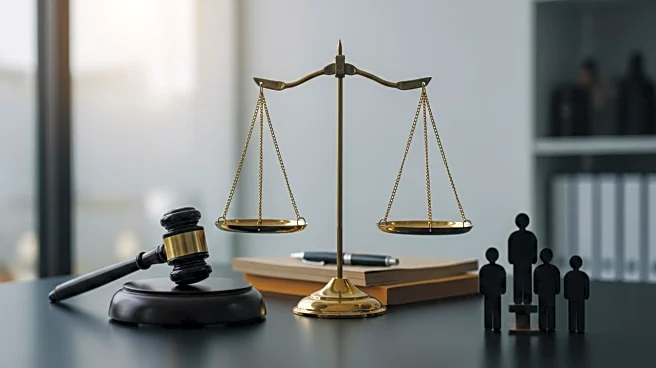What's Happening?
The Federal Trade Commission (FTC) is facing a lawsuit from Xlear, a company that produces products containing xylitol, challenging the agency's requirement for substantial evidence to support health claims. This legal action comes as the FTC, under the Trump administration, has seen a reduction in enforcement actions against supplement makers and a significant decrease in staff within its Division of Advertising Practices. The lawsuit, if successful, could allow companies to make health claims without the need for clinical trials or substantial evidence, a move that could significantly alter the regulatory landscape for health products. The FTC has traditionally required companies to back their health claims with evidence to prevent misleading advertising, a practice that has been in place since 1984.
Why It's Important?
The outcome of this lawsuit could have far-reaching implications for consumer protection and the regulation of health products in the United States. If Xlear's challenge is successful, it could weaken the FTC's ability to regulate health claims, potentially leading to an increase in unsubstantiated claims in the market. This could impact consumer trust and safety, as individuals may be exposed to products that do not deliver on their advertised benefits. Additionally, the reduction in FTC staff and the shift in focus within the Department of Justice could further limit the government's capacity to enforce existing regulations, potentially leading to a less regulated market for health products.
What's Next?
The legal proceedings will determine whether the FTC can maintain its current standards for substantiating health claims. The case may also influence future regulatory policies and enforcement strategies, particularly if the court's decision aligns with the recent Supreme Court ruling that allows courts to challenge federal agencies' interpretations of laws. Stakeholders in the health and supplement industries, as well as consumer advocacy groups, will be closely monitoring the case, as its outcome could set a precedent for how health claims are regulated in the future.
Beyond the Headlines
The lawsuit highlights a broader debate over the balance between consumer protection and market freedom. Proponents of deregulation argue for greater consumer choice and less government intervention, while critics warn of the risks associated with unverified health claims. The case also underscores the challenges faced by regulatory agencies in maintaining oversight with limited resources, particularly in a rapidly growing supplement industry valued at $70 billion.










